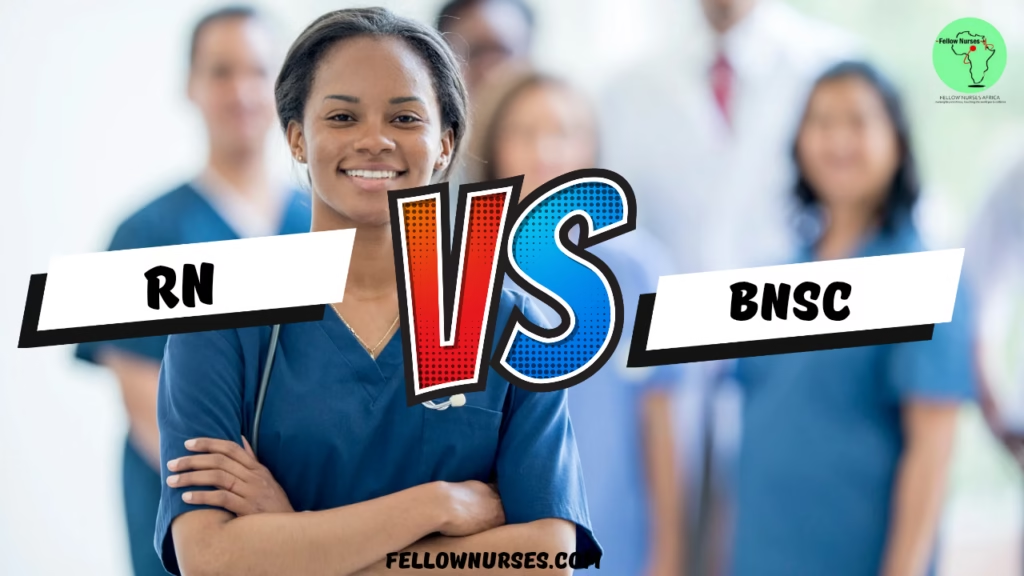The Great Nursing Debate: Degrees vs. Skills—Does It Really Matter?
In a world where healthcare professionals are needed more than ever, a heated debate recently took over social media: Do degrees define a nurse’s competence? Or is hands-on experience just as valuable, if not more?

The Controversial Statement That Sparked Outrage
It all started when @Prezain_LJ boldly claimed:
“I don’t rate HNDs and NDs. I just see Polytechnics, Open Universities, and Colleges of Education as playgrounds. If you went through School of Nursing, I don’t see you as a nurse. I could never allow you to attend to me.”
His statement, dripping with academic elitism, sparked an uproar. He went further to say that nurses who graduated from Schools of Nursing should be classified as Auxiliary Nurses because, in his view, they only assist the “main nurses” by checking blood pressure and other vitals under supervision.
But the internet was ready. And the responses? Nothing short of legendary.
Skills Save Lives, Not Just Degrees
One user, @realfunmijm, hit back with a sharp reality check:
“Ah yes, because degrees save lives, not skills or experience. Meanwhile, the ‘playground’ nurses you look down on are out here running hospitals, leading in advanced practice, and literally saving lives. But don’t worry, if you ever collapse, we’ll be sure to check your credentials before resuscitating you.”
Another person, @AribisalaTosin5, shared a success story:
“My friend who studied at an Open University—yes, the same ‘playground’ you insulted—won a fully funded PhD scholarship in the U.S. last year. And a few years ago, an HND student from Kwara State secured seven PhD scholarships in the U.S. without even doing a Master’s first!”
Clearly, the so-called ‘playground’ institutions are producing global achievers.
Nurses Are Thriving in Every Sector
The clapbacks didn’t stop there. A professional in the oil sector, @Kelvinlegitt, had this to say:
“20 of my colleagues were recently hired by a Qatar oil company with OND certificates. They’re earning in dollars, and no oil company in Nigeria can match their salaries.”
Then came the personal stories of nurses who had risen through the ranks:
“My mom started from the School of Nursing, but today, she has a Master’s degree and is a top official in the Ministry of Health.” – @Ayooluwa_UX
“Auxiliary nurse is different from School of Nursing. School of Nursing graduates are licensed by the same regulatory body as BSc Nursing graduates. They take the same exams and are just as qualified.” – @_thintallmarcus
Degrees Don’t Define Success—Skill Does
One user, @Oluwalargess, summed it up perfectly:
“Thank God that degrees alone aren’t the determinant of success. Skills and what you have within you will always push you in the right direction.”
Another, @Omolomo_o, added:
“I’m not even interested in what school you attended in Nigeria (as long as it’s not a private university), but I’d bet that even the best student in your department wouldn’t stand a chance against an HND first-class graduate from Yabatech.”
Final Thoughts: The Real Measure of a Nurse
At the end of the day, a degree is just a piece of paper. While formal education provides theoretical knowledge, skill, experience, and continuous learning are what truly shape a competent healthcare professional. The idea that only university graduates are ‘real’ nurses ignores the reality that many nurses from polytechnics and Schools of Nursing have built incredible careers in healthcare, often outperforming their degree-holding counterparts.
So, the next time you need medical care, ask yourself: Would you rather have a nurse with hands-on expertise or someone with a framed certificate but no real-world experience?
Let’s keep this conversation going—what’s your take on this debate? Drop a comment below! 👇🏽











